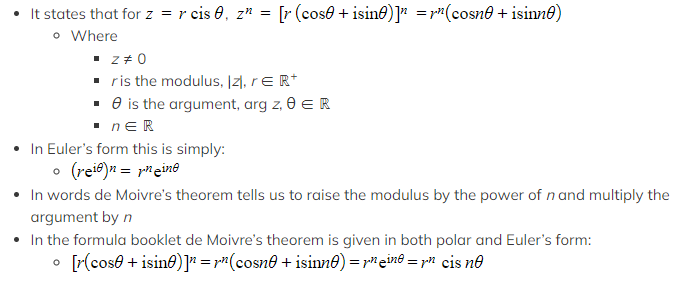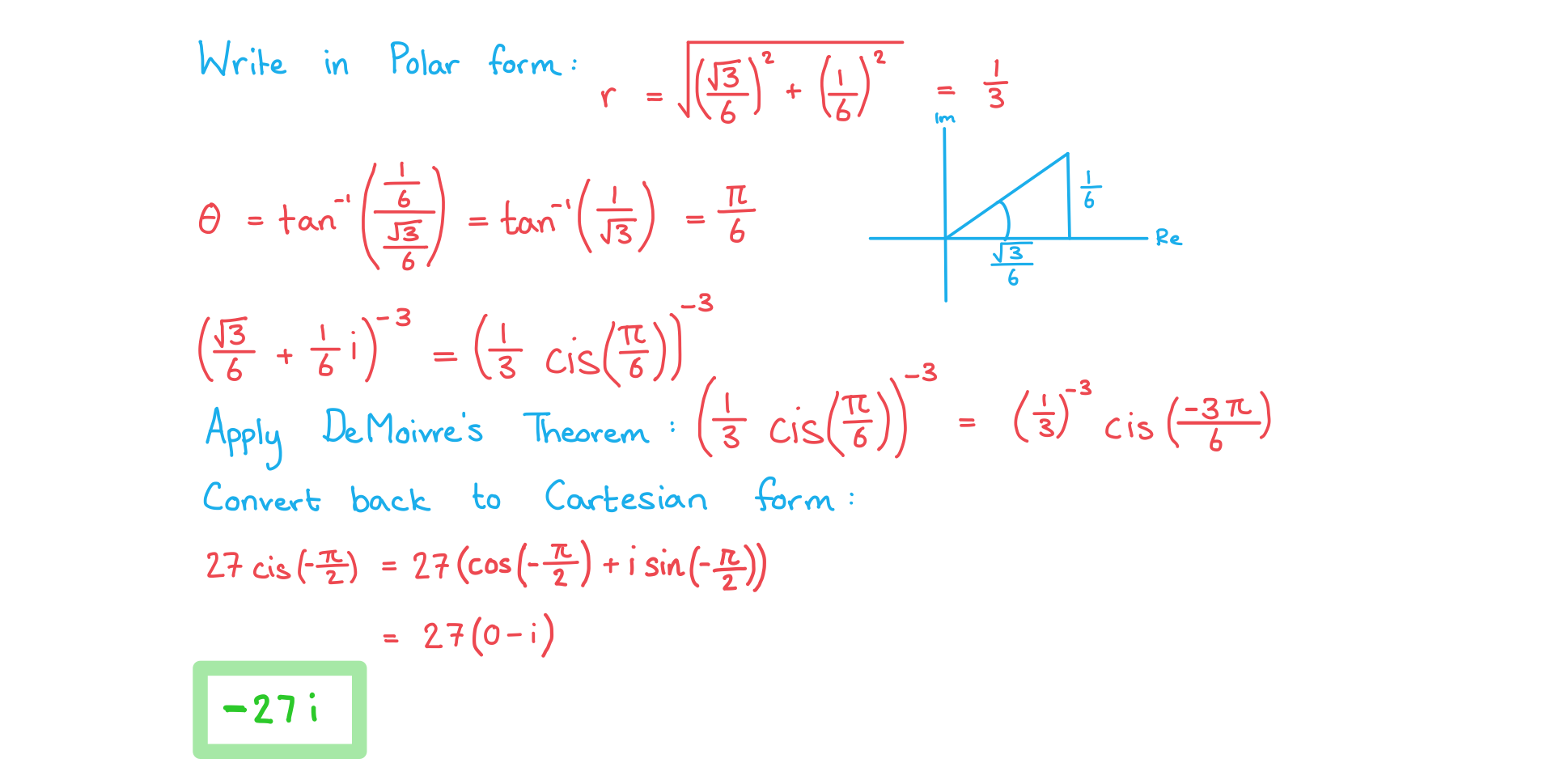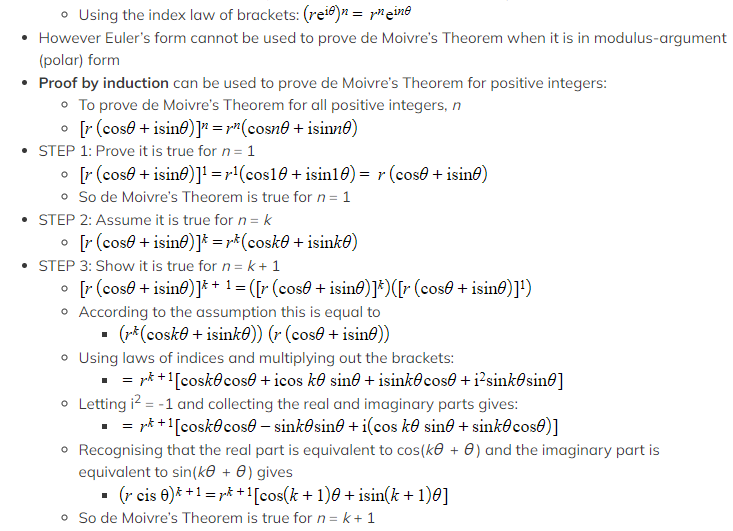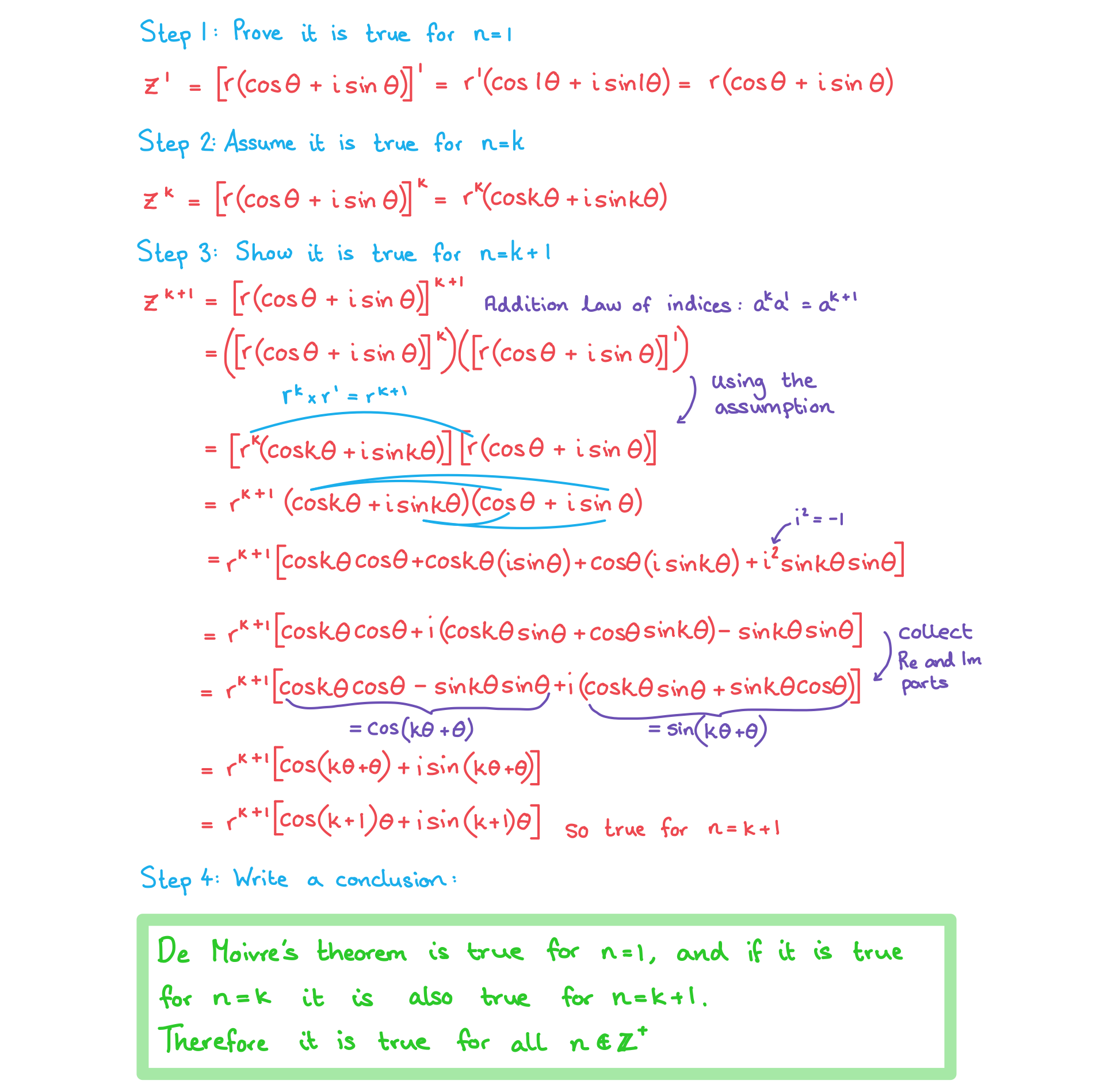- 翰林提供学术活动、国际课程、科研项目一站式留学背景提升服务!
- 400 888 0080
IB DP Maths: AA HL复习笔记1.9.4 De Moivre's Theorem
What is De Moivre’s Theorem?
- De Moivre’s theorem can be used to find powers of complex numbers

How do I use de Moivre’s Theorem to raise a complex number to a power?
- If a complex number is in Cartesian form you will need to convert it to either modulus-argument (polar) form or exponential (Euler’s) form first
- This allows de Moivre’s theorem to be used on the complex number
- You may need to convert it back to Cartesian form afterwards
 Exam Tip
Exam Tip
- You may be asked to find all the powers of a complex number, this means there will be a repeating pattern
- This can happen if the modulus of the complex number is 1
- Keep an eye on your answers and look for the point at which they begin to repeat themselves
Worked Example


Proof of De Moivre's Theorem
How is de Moivre’s Theorem proved?
- When written in Euler’s form the proof of de Moivre’s theorem is easy to see:
 STEP 4: Write a conclusion to complete the proof
STEP 4: Write a conclusion to complete the proof
- The statement is true for n = 1, and if it is true for n = k it is also true for n = k + 1
- Therefore, by the principle of mathematical induction, the result is true for all positive integers, n
- De Moivre’s Theorem works for all real values of n
- However you could only be asked to prove it is true for positive integers
Exam Tip
- Learning the standard proof for de Moivre's theorem will also help you to memorise the steps for proof by induction, another important topic for your AA HL exam
Worked Example

转载自savemyexams

最新发布
© 2025. All Rights Reserved. 沪ICP备2023009024号-1









